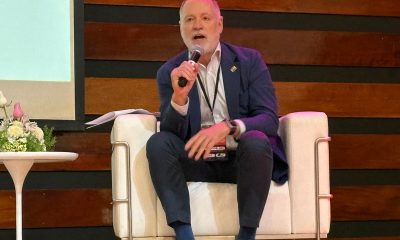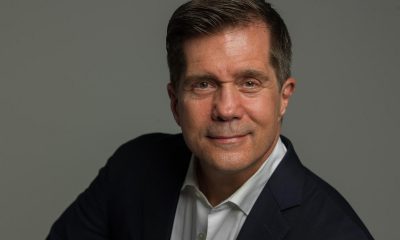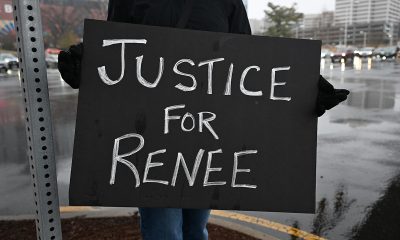Peru
Peruvian activists react to Pope Leo XIV’s election
American-born pontiff was bishop of Chiclayo
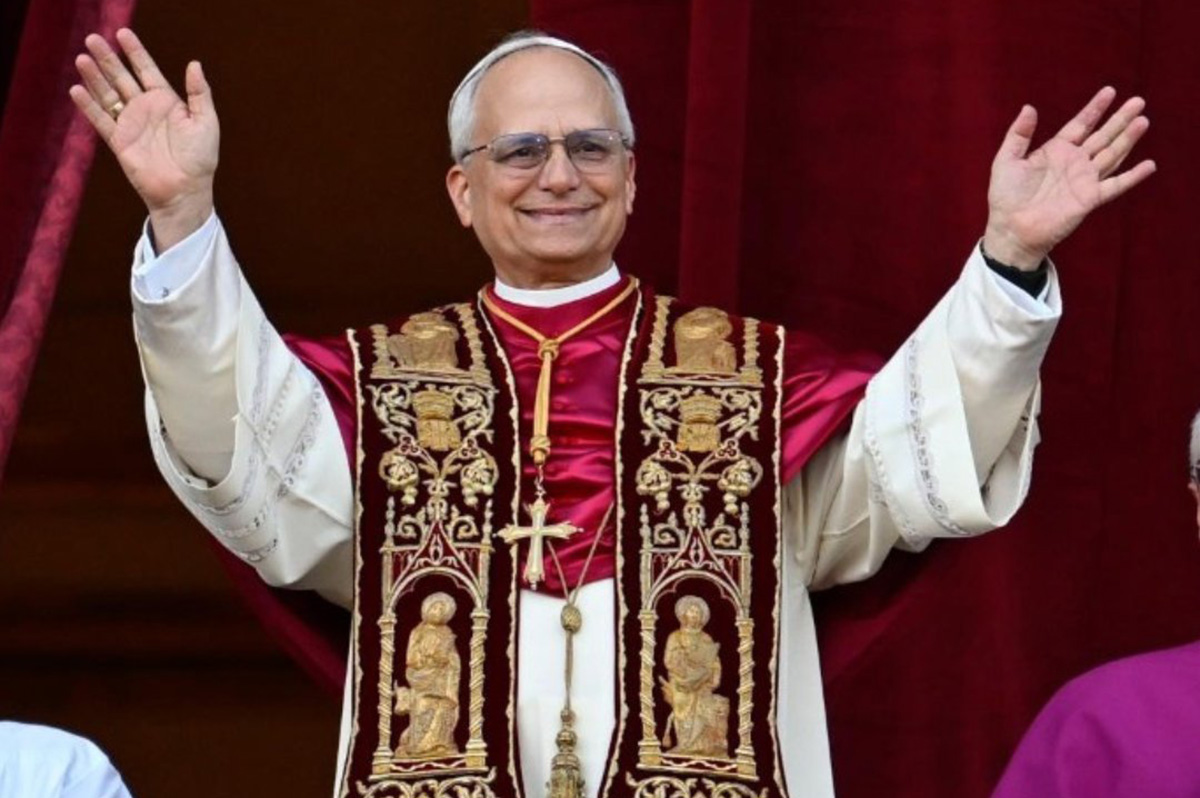
Pope Leo XIV’s election has sparked global reactions, but his appointment has struck a deeper chord in Peru.
The now-pontiff served for years as bishop of Chiclayo, a city in northern Peru. For LGBTQ leaders and activists in the country, Leo represents a figure who, while unlikely to overhaul church doctrine, could signal a shift towards a less hostile and more open Catholic Church.
“The fact that the new pope lived and served pastorally in Peru is no small thing,” said George Hale, director of Promsex, an advocacy group that is based in Lima, the Peruvian capital. “Leo XIV is deeply familiar with inequality, abuses of power, popular religiosity, and the pain of a society scarred by classism and exclusion. His support for victims of the Sodalitium scandal showed a courageous figure willing to listen when others remained silent.”
The Sodalitium of Christian Life, a Peruvian Catholic lay group implicated in cases of sexual and psychological abuse against minors, became one of the church’s worst scandals in Latin America. Leo’s direct involvement in sanctioning those responsible — and his central role in the group’s eventual dissolution — was widely viewed as a sign of his commitment to reform from within.
Former Congressman Alberto de Belaunde, one of Peru’s few openly gay political figures, also welcomed Leo’s election, describing his trajectory as “good news within the Vatican.” De Belaunde emphasized Leo’s time at the Pontifical Catholic University of Peru, where he served on the university’s assembly as the church’s representative.
“Unlike other pontifical universities, the PUCP is progressive and diverse,” De Belaunde said. “Monsignor Prevost always demonstrated a remarkable ability to dialogue and showed respect for differing views. That speaks volumes about both his intellectual and pastoral approach.”
The question still remains: How much could the church change under Leo’s papacy when it comes to LGBTQ rights?
“Sometimes, even just a change in tone makes a difference,” De Belaunde noted. “I grew up under the influence of Pope John Paul II and Bishop Cipriani, both known for confrontational rhetoric. When the pope says things like ‘Who am I to judge?’ — it doesn’t change doctrine, but it humanizes the discourse. And that matters.”
De Belaunde specifically referred to Pope Francis’s 2013 comments about gay priests. (The Vatican’s tone on LGBTQ and intersex issues softened under Francis’s papacy, even though church teachings on homosexuality did not change.)
“There are very conservative factions within the church, outright enemies of our rights,” said Congresswoman Susel Paredes, who is a lesbian. “But there’s also space for love of neighbor, as Jesus taught. Even if Pope Leo XIV were to chart a path toward full inclusion of LGBTQ people, resistance would remain. These things don’t change overnight.”
Paredes also highlighted Francis’s legacy — especially his vision of a synodal church. The Argentine-born pontiff who died on April 21 was Leo’s direct mentor.
“Pope Francis spoke of a church where ‘everyone, everyone, everyone’ walks together without distinction,” she said. “Leo XIV was already part of that vision when he worked in some of Peru’s poorest areas. That gives us hope and reason to watch his papacy with expectation.”
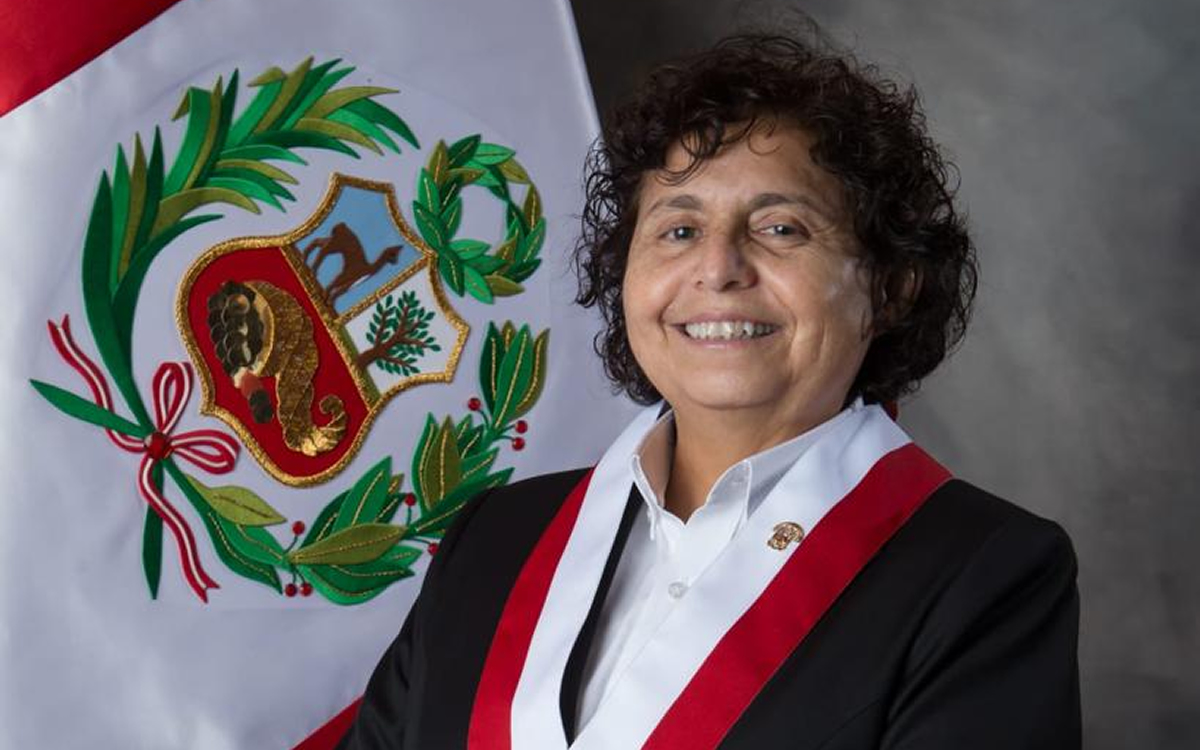
Activists, however, are clear-eyed about the limits of symbolic change.
“He (Leo) doesn’t appear to be a hostile figure,” Hale said. “But he’s not pushing for radical reform either. He won’t lead the fight for same-sex marriage or trans rights. But his more humane tone — his closeness to those on the margins — can help de-escalate hate speech, especially in a country like ours.”
Hale also pointed to a recent gesture from the new Leo that raised concerns: His public support for the Peruvian bishops’ statement opposing a court ruling that granted Ana Estrada, a woman with a degenerative disease, the right to die with dignity through euthanasia.
“By endorsing that statement, he reaffirmed official doctrine. And while he may be compassionate, he’s still aligned with traditional positions on some key issues,” Hale said. “That’s why we insist: We’re not expecting a revolution, but a shift in tone matters.”
Peru does not recognize same-sex marriages, and transgender people lack legal protections. Expectations about Leo’s papacy remain measured because church rhetoric remains a roadblock to civil rights.
“Rights are granted by laws, and the separation of church and state must remain fundamental,” said Paredes. “That’s where progress happens, in secular legislation.”
“Yes — it’s a breath of fresh air to have a pope who doesn’t slam the door shut, who has walked with Peru’s most excluded,” she added. “That gives us encouragement to keep going.”
Federal Government
Former USAID official criticizes White House foreign policy
Jene Thomas spoke at LGBTQ rights conference in Peru last month
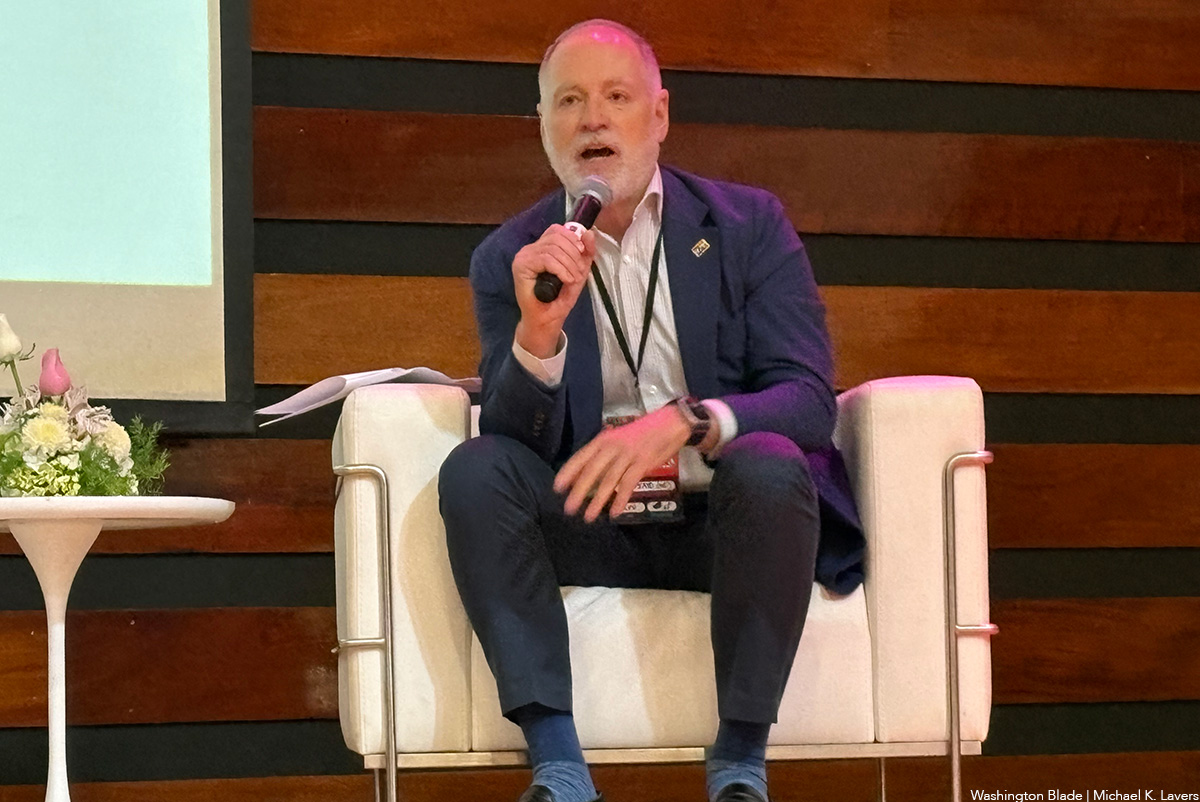
LIMA, Peru — A former U.S. Agency for International Development official who participated in an LGBTQ rights conference last month in Peru said the Trump-Vance administration is adversely impacting human rights in the U.S. and around the world.
“He doesn’t want anyone to intervene with him, because he has these tendencies that are obviously antidemocratic,” said Jene Thomas, referring to President Donald Trump without specifically mentioning him by name in comments he made on Sept. 25 during the LGBTIQ+ Political Leaders from the Americas and the Caribbean Conference that took place in Lima, the Peruvian capital.
The LGBTQ+ Victory Institute co-organized the conference alongside LGBTQ advocacy groups from Peru, Colombia, Honduras, the Dominican Republic, and Mexico. Former U.S. Ambassador to Bosnia and Herzegovina Eric Nelson is among those who also spoke.
“We were one of the leaders of the international community to intervene, for example the anti-NGO law here in Peru,” said Thomas, referring to a controversial bill that Peruvian President Dina Boluarte signed in April. “The ambassador took a very strong position against this law, and these voices have been silenced.”
“It doesn’t just affect the LGBT community,” he added.
Thomas worked at USAID for 28 years until his forced retirement on Sept. 2, the day his termination took effect.
He was mission director in Mexico, Peru, and Haiti, and held senior positions with USAID in Colombia, Pakistan, and in the Caribbean.
Expanding conservation efforts in the Yucatán Peninsula’s Selva Maya, addressing the root causes of migration from southern Mexico and Central America, and leading humanitarian efforts in Haiti are among the issues on which Thomas worked. He also worked for the U.S. Environmental Protection Agency and the U.S. Army Corps of Engineers in Germany, and volunteered with the U.S. Peace Corps in Mali.
Trump-Vance administration shuttered USAID
The promotion of LGBTQ and intersex rights abroad was a cornerstone of the Biden-Harris administration’s overall foreign policy. The global LGBTQ and intersex rights movement since the Trump-Vance administration froze nearly all U.S. foreign aid has lost more than an estimated $50 million in funding. (The Lima conference took place with 10 percent of the original budget.)
Secretary of State Marco Rubio in March announced 83 percent of USAID contacts had been cancelled, and the State Department would administer the remaining programs. USAID officially shut down on July 1.
Rubio issued a waiver that allowed PEPFAR and other “life-saving humanitarian assistance” programs to continue to operate during the funding freeze. The Washington Blade has previously reported PEPFAR-funded programs in Kenya and other African countries have been forced to suspend services and even shut down because of gaps in U.S. funding. Recent reports indicate the White House plans to not fully fund the program in the upcoming fiscal year.
GLIFAA board members in February resigned in response to Trump’s sweeping “Defending Women from Gender Ideology Extremism and Restoring Biological Truth to the Federal Government” executive order that he signed shortly after his inauguration.
GLIFAA is an organization for LGBTQ Foreign Service members. Thomas at the conference noted efforts at the State Department when he began his career to fight for gay and lesbian Foreign Service officers.
“We fought for more than a decade to change the system and then, we eventually won,” he said. “What we are seeing now is a setback.”
Thomas in response to a question about current U.S. foreign policy that George Hale, executive director of Promsex, a Peruvian LGBTQ rights group, asked said the White House’s anti-transgender and anti-human rights policies are having an impact around the world. Thomas added China, Russia, and other anti-democratic countries will try to become more influential on the global stage.
“This example is being replicated in all parts of the world, and not just in Latin America,” said Thomas. “It is true, and it is terrible.”
Thomas referred to advocacy in response to the HIV/AIDS epidemic that began in New York and San Francisco in the early 1980s as an example of how to respond to the current situation. He also found inspiration in Spanish Sen. Carla Antonelli, a trans woman who said earlier this year in a parliament speech said she and other trans people “are not going to go back to the margins.”
“What we have to do is look for other allies. We have to come together to share experiences, to look for other financing,” said Thomas. “This is obviously a big part of what went into strengthening the fight against these anti-democratic currents.”
“The good news is that they are cycles,” he added.
Bosnia and Herzegovina
Former US ambassador to Bosnia criticizes White House’s foreign policy
Eric Nelson was one of five gay ambassadors during first Trump administration
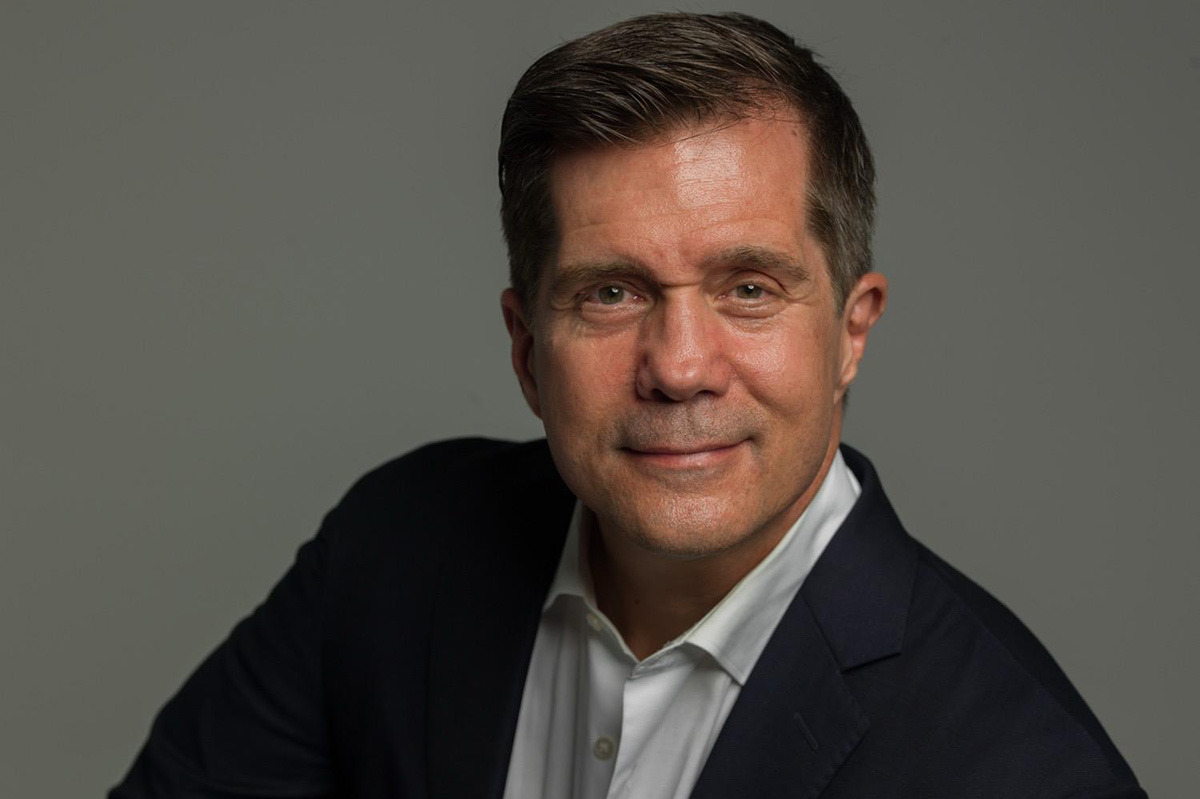
LIMA, Peru — Former U.S. Ambassador to Bosnia and Herzegovina Eric Nelson says the Trump-Vance administration has tarnished the U.S.’s standing around the world.
“We’ve really lost our way in terms of understanding what our strengths are, what our values are,” he told the Washington Blade on Sept. 26 during an interview in the Peruvian capital.
Nelson was the U.S. ambassador to Bosnia and Herzegovina from 2019-2022. He is one of five openly gay men who were ambassadors during the Trump-Pence administration. (Richard Grenell was ambassador to Germany, Randy Berry was ambassador to Nepal, Jeff Daigle was ambassador to Cabo Verde, and Bob Gilchrist was ambassador to Lithuania.)
Nelson, a career Foreign Service officer who is now retired, in 1992 co-founded GLIFAA, an association of LGBTQ Foreign Service agencies employees. Nelson is also a member of the LGBTQ+ Victory Institute’s board of directors.
He spoke with the Blade after the LGBTIQ+ Political Leaders from the Americas and the Caribbean Conference that the Victory Institute co-organized alongside LGBTQ advocacy groups from Peru, Colombia, Honduras, the Dominican Republic, and Mexico ended. Former USAID Mexico Mission Director Jene Thomas, Peruvian Congresswoman Susel Paredes, Spanish Sen. Carla Antonelli, Massachusetts state Sen. Jack Patrick Lewis, and Uruguayan Human Rights Secretary Collette Spinetti are among the upwards of 200 people who attended the three-day event.
Alba Rueda, Argentina’s former special envoy for LGBTQ rights, also participated.
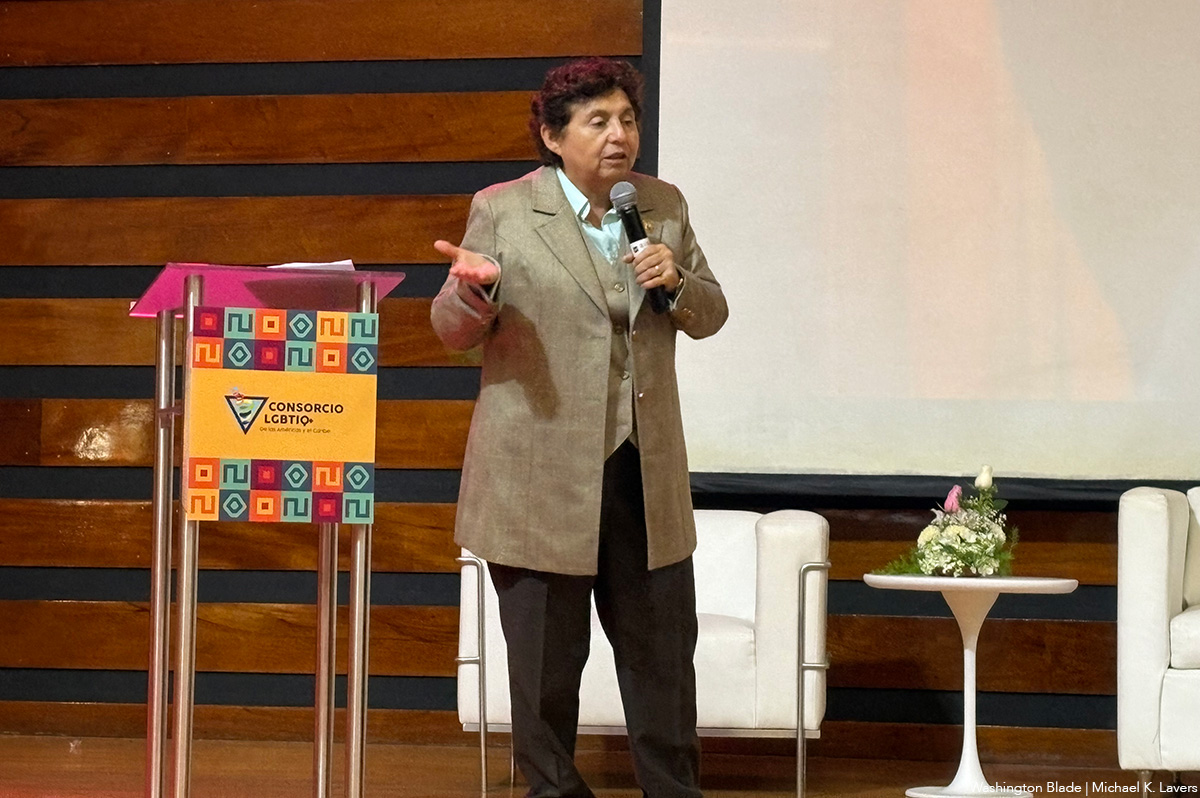
The global LGBTQ and intersex rights movement since the Trump-Vance administration froze nearly all U.S. foreign aid has lost more than an estimated $50 million in funding.
Secretary of State Marco Rubio in March announced 83 percent of U.S. Agency for International Development contacts had been cancelled, and the State Department would administer the remaining USAID programs.
USAID officially shut down on July 1.
Rubio issued a waiver that allowed PEPFAR and other “life-saving humanitarian assistance” programs to continue to operate during the funding freeze. The Blade has previously reported PEPFAR-funded programs in Kenya and other African countries have been forced to suspend services and even shut down because of gaps in U.S. funding. Recent reports indicate the White House plans to not fully fund the program in the upcoming fiscal year.
GLIFAA board members in February resigned in response to President Donald Trump’s sweeping “Defending Women from Gender Ideology Extremism and Restoring Biological Truth to the Federal Government” executive order that he signed shortly after his inauguration.
“Of course we faced great adversity, and people were being fired then or threatened with firing for being gay. And we got together and said, you know, this is crazy. You can’t do this to us,” said Nelson, referring to GLIFAA. “We fought back and started to get fair treatment, but at that time, we always had freedom of speech, and we always had freedom of association.”
The State Department in August faced sharp criticism over the removal of LGBTQ and intersex-specific references from its annual human rights reports. Nelson said he is “amazed at how quickly we’ve burned our soft power in the world.”
“We’ve really lost our way on understanding what our strengths are,” he reiterated.
The Lima conference took place with 10 percent of the original budget.
Paredes secured a space for the conference, while donations from foundations and private donors allowed it to take place. Nelson noted participants paid for their own travel, accommodations, and meals.
“This week has been a big win because we would not allow ourselves to be cancelled,” he said.
LGBTQ elected officials ‘on the front lines of defending democracy’
Sarajevo’s first Pride march took place in 2019, the first year of Nelson’s ambassadorship.
Nelson pointed out the embassy “had been supporting for years civil society and encouraging the community to follow through on their desire to have a Pride march.” The U.S. and other countries with embassies in Sarajevo also encouraged local authorities to “do the right thing and protect them (Pride march participants) like they would any citizen, and give them the right of assembly.”
Upwards of 4,000 people participated in the march that took place against the backdrop of hundreds of police officers who were deployed along the route. Violence has marred Pride events in Belgrade, Serbia, and other cities in the region, but the Sarajevo march took place without incident.
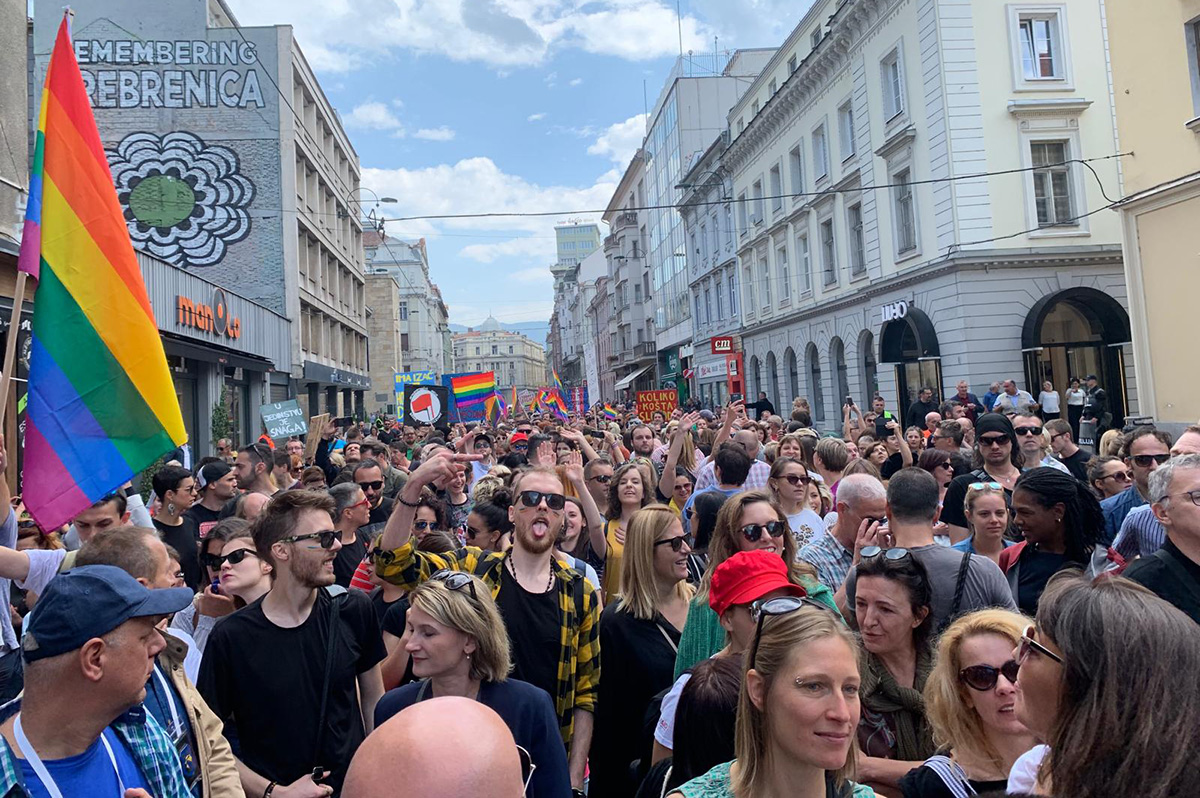
Nelson in response to the Blade’s question about the Trump-Vance administration’s foreign policy and its decision to target diversity, equity, and inclusion programs noted the embassy under his ambassadorship created a council that sought to respond to employees’ concerns around discrimination and exclusion.
“In Bosnia and Herzegovina, identity is very much understood and felt, so we had a very broad participation of people joining this effort,” he said. “They’ve seen how identity can lead to bitterness and war, so they were like, we get it, whether you are gay, or Croat, or Catholic, or Muslim, these should not be issues in terms of how we act and perform professionally.”
“For me, it was very hard to see the complete backlash,” added Nelson.
Nelson also said Russian President Vladimir Putin and Hungarian President Viktor Orbán continue to promote an agenda that “seeks to demonize our community, to use us to bring division into our democracies, to pit us against each other.” Nelson told the Blade that LGBTQ elected officials and candidates are key to protecting democracy around the world.
“What these leaders who assembled here this week in Lima are doing is they’re on the front lines of defending democracy,” he said.
Peru
Victory Institute to honor Peruvian congresswoman at D.C. conference
Susel Paredes is first lesbian woman elected to country’s Congress

The LGBTQ+ Victory Institute will honor Peruvian Congresswoman Susel Paredes at its annual International LGBTQ+ Leaders Conference that will take place in D.C. in December.
Paredes, a long-time activist who in 2021 became the first lesbian woman elected to the South American country’s Congress, will receive the 2024 LGBTQ+ Victory Institute Global Trailblazer Award.
Paredes and her wife, Gracia Aljovín, married in Miami in 2016. The two women sued the Peruvian government after the country’s Constitutional Court denied their request to register their marriage.
“It is a true honor and a recognition that I deeply value,” said Paredes in a post to her X account after she learned the Victory Institute will honor her in D.C.
Victory Institute Executive Director Elliot Imse described Paredes as “a true champion through her activism and political engagement for decades.”
“Her historic election to the Congress of Peru is just one of many testaments to her status as a true trailblazer who is exceptionally deserving of this honor,” added Imse.



